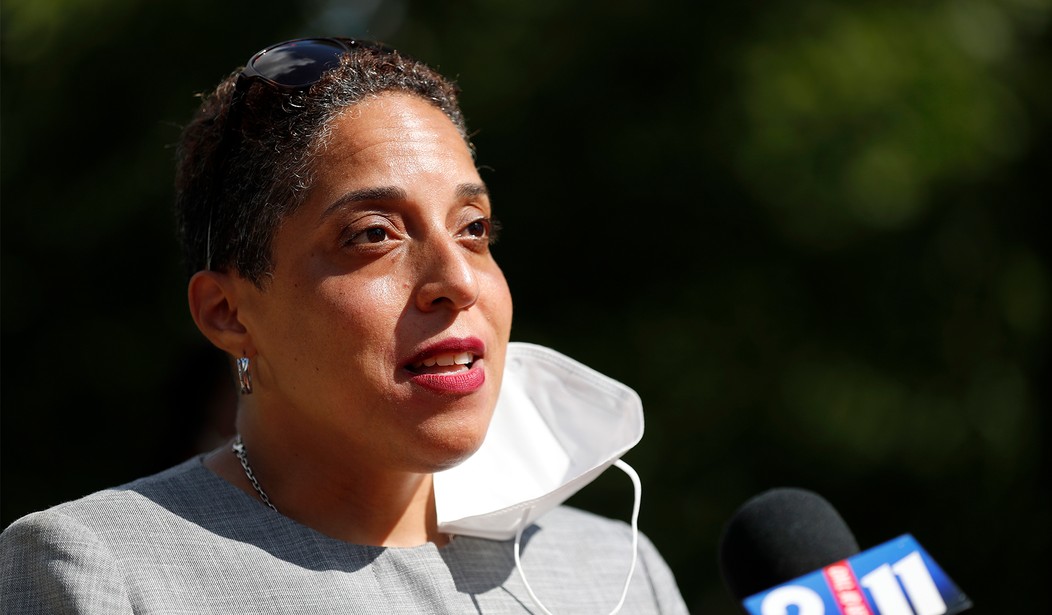Last Thursday, embattled Circuit Attorney Kim Gardner announced she was resigning from office at the start of next month. In case you missed all of that, Gardner had been sued by the state’s Attorney General who was trying to remove her from office on the grounds that she was unfit. The case took a turn last week when a judge allowed most of the elements of that lawsuit to proceed to trial.
There was also lots of bad news for Gardner in the media. For instance, we learned that she’d been pursuing an advanced nursing degree at a local university. Some of the details were sketchy but at a minimum the degree required more than 1,000 clinical hours (about 6 months of full time work) to complete. Shortly after that story broke is when Gardner announced her resignation.
Last Friday she lashed out at her critics during a live-stream. “Ever since I’ve been in this office I’ve been criminalized,” she said. She blamed her resignation on enemies all around her with racist motives.
Surrounded by supporters, Gardner cast herself as a reformer who tried to hold police officers accountable and offer second chances to deserving defendants — and incurred the wrath of racist, reactionary political and legal establishments as a result.
“It’s just sad how every side is against me,” she said.
Gardner, the city’s first Black circuit attorney, chalked it up to a sinister effort to dismantle Black political power and fears that a new approach would take money away from people who depend on the arrest, detention and prosecution of Black people…
She said mayors “defunded” her office over and over — despite multiple significant increases to her budget — leaving her with a “bubblegum budget” bereft of essential tools to do the job.
Was Kim Gardner the victim of a secret cabal or was she just an abject failure at her job? The St. Louis Post-Dispatch interviewed a dozen current and former staff members about what it was like to work for her.
“I don’t think any of her issues have had to do with her policies. Yes, the police department opposed her, but tension with the police is just the nature of the work,” said Aaron Levinson, a former assistant circuit attorney who prosecuted violent crimes in the first 18 months of Gardner’s tenure.
Levinson said he decided to speak out now after watching Gardner expose his former colleagues to legal jeopardy and unfair conditions over the last six months. “All of her issues stem from the fact she was just a bad manager.”…
Jennifer Lorentz, an assistant prosecutor in the office at the time, said she was all-in on Gardner’s vision in the early days…
Gardner came into an office with about 60 attorneys. Just one year after Gardner took over, Lorentz became the 32nd staff member to leave.
“I’m devastated what she did to that office,” Lorentz, now a criminal justice professor, said. “We were on her team and it felt right away she didn’t want us. When someone would leave, it was an attitude like — you’re all replaceable. I don’t think she knew how hard that would actually be.”
Chris Faerber, who prosecuted gun crimes, described what happened to the office after Gardner arrived as an attempt to burn it all down without any plan to rebuild. “Everything was torn down and it didn’t seem like there was anything being built to replace it. A lot of people didn’t know who their boss was or what other people in the office were doing,” he said.
The office that started with 60 prosecutors is now down to about twenty. Gardner’s replacement will be selected by the governor and will have until 2024 to try and rebuild the office.









Join the conversation as a VIP Member